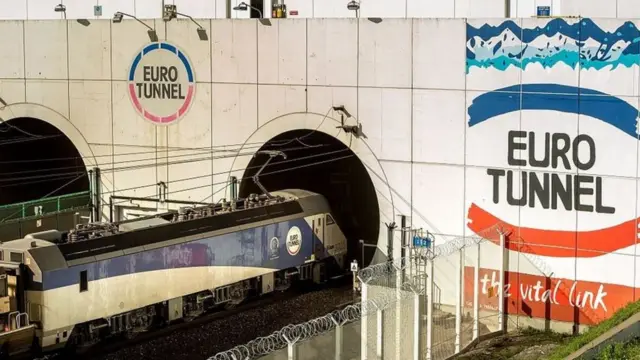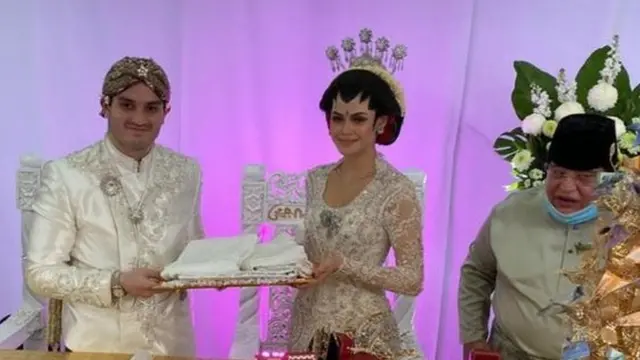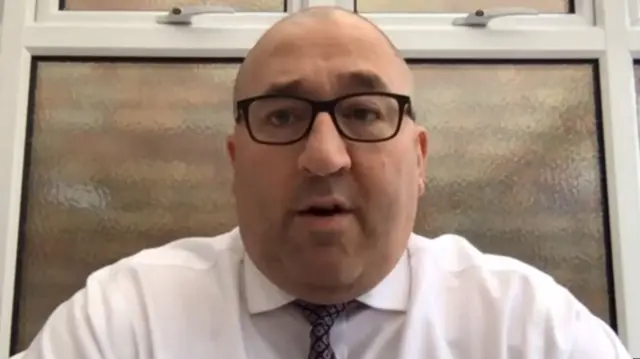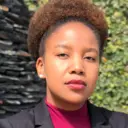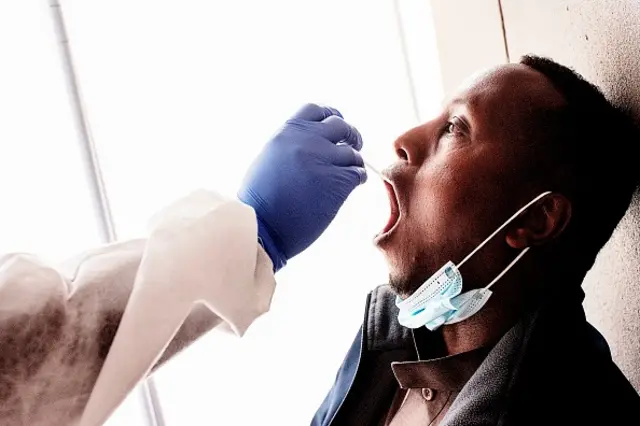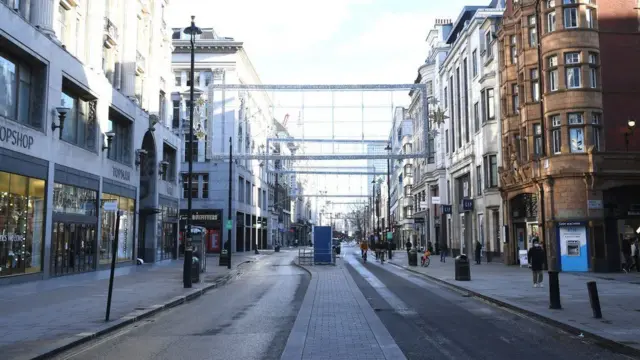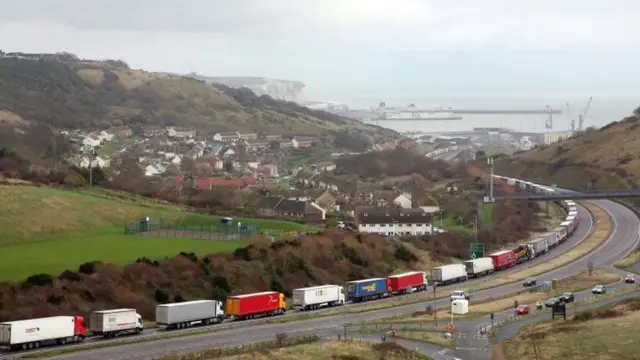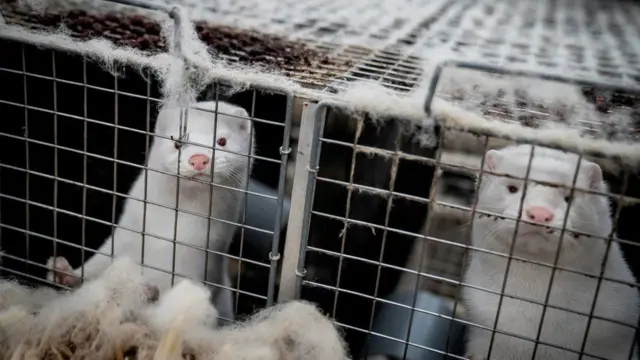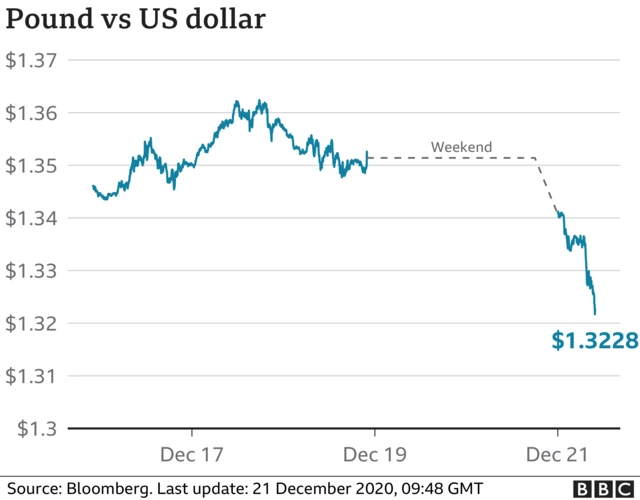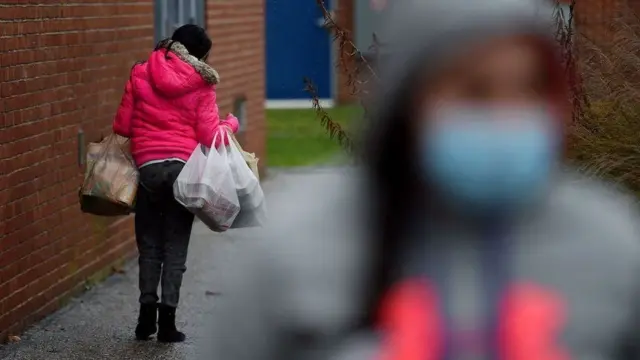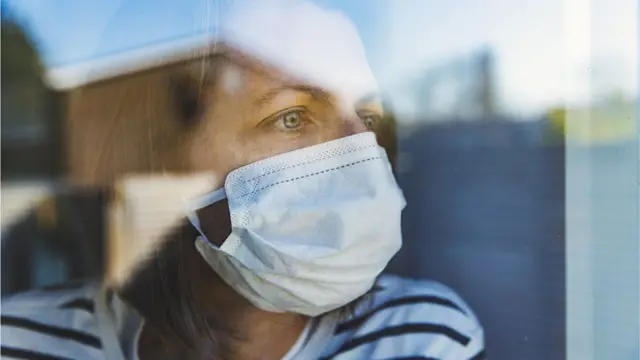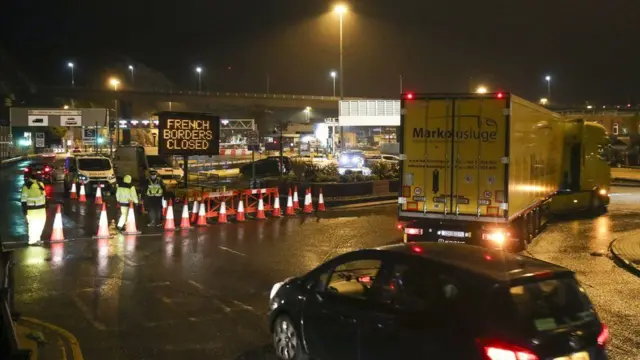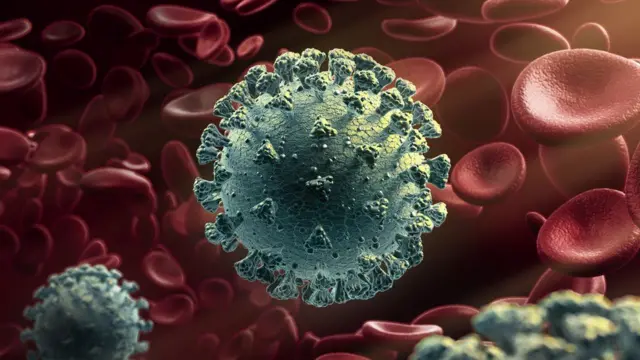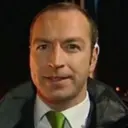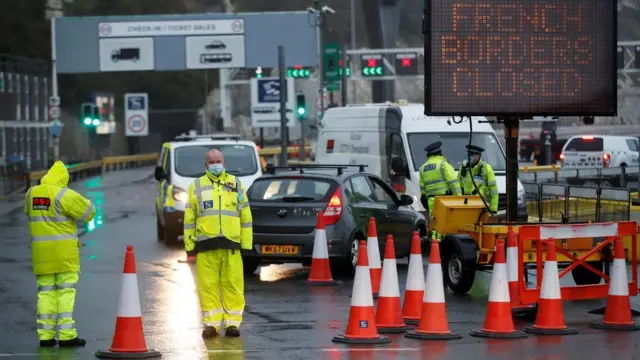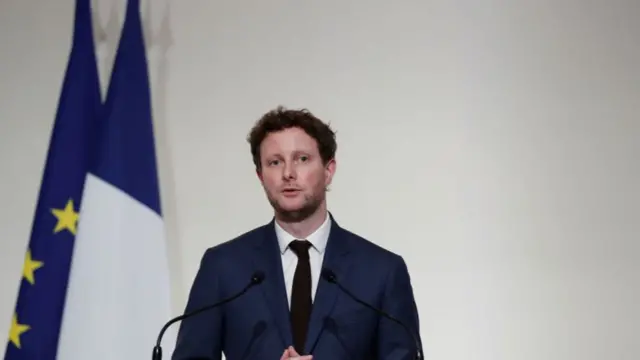What do we know about the new variant?published at 12:30 GMT 21 December 2020
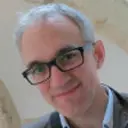 James Gallagher
James Gallagher
Health and science correspondent, BBC News
The new variant was first detected in September. In November it made up around a quarter of cases in London. This reached nearly two-thirds of cases in mid-December.
Three things are coming together that mean it is attracting attention:
- It is rapidly replacing other versions of the virus
- It has mutations that affect part of the virus likely to be important
- Some of those mutations have already been shown in the lab to increase the ability of the virus to infect cells
All of these come together to build a case for a virus that can spread more easily. However, we do not have absolute certainty. New strains can become more common simply by being in the right place at the right time - such as London.
There is no evidence yet to suggest the variant makes the infection more deadly, and at least for now the developed vaccines will almost certainly work against it.
However, if the virus changes so it dodges the full effect of the vaccine, then "vaccine escape" happens, and this may be the most concerning element.
